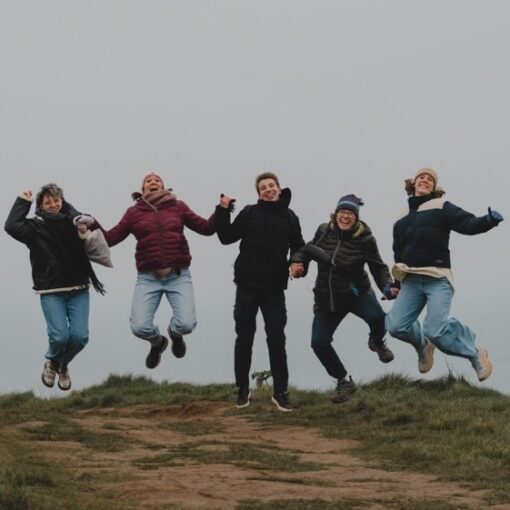By now you all know that I am a life and business coach (specifically The Challenge Coach). But do you know the story of how I became a coach? I promise you it’s worth reading
23 years ago I became a mom for the first time. I had been wanting children for over two decade and I had had a pretty decent childhood with loving parents, so of course I was going to be a great parent.
NOT SO!!!!
To my dismay, I found out that parenting was a lot more challenging than I had imagined, and my feelings of inadequacy led me to be a rather unpleasant person – especially toward my poor first born. That’s when my French friends told me about this amazing local non-profit called PEP: the Parent Encouragement Program, which offered (and still does!), life changing parenting classes.
The rest is history …
I started taking these classes avidly, eventually started teaching them, and finally became a certified parent educator at PEP. The parenting classes taught there are based in the psychology of Alfred Adler, and Adler has been recognized as the inspiration for much of today’s modern psychotherapy movements and schools, as well as “the grandfather of coaching”. And that is how and why I decided to become a coach.
I officially did my coach training and certification with CTI, the Co-Active Training Institue (one of the foremost coach training institutions in the world). But the principles in which I base my work (and my life!), are Adlerian Psychology principles.
Last month, I was honored to present multiple workshops at NASAP, the North American Society of Adlerian Psychology. One of them was a workshop called “Adlerian Coaching in Practice”, during which I discussed the five “assumptions” of Adlerian Psychology, and how they relate to coaching.
Today I’d like to share those with you – and how using and applying these principles in your life can create positive change for you.
First, let me explain why they are called “assumptions” – and not “principles” or “tenets”: they are not truth but rather the lenses Adlerians use to construe life. Assumptions are not the end; they are the means to an end. They are assumptions because if we assume these, they help us to proceed further. And the fact that Adler called his ideas “assumptions” instead of “principles” is in and of itself a metaphor for who he was: humble, he didn’t think of himself as the beholder of “truths”.

According to Adler, human beings are unified wholes that you have to understand in their social contexts. What this means is that Adler didn’t believe that you could separate humans into different “parts” and look at them or evaluate them separately from each other. In other words, if your life partner just dumped you and your heart is broken, the impact of this emotional event can have an impact on your mental and/or physical health- it’s not just emotional.
Or if you have a chronic and painful medical condition – be it allergies or cancer – your morale and your mental health can also be significantly affected by this physical event. Adler – who was a doctor himself – had intuited before modern research has proven it: the importance of wholistic medicine – i.e. seeing the human being as a whole, whose problems need to be solved holistically. When a client describes their current challenges while holding and rubbing their head with both their hands, I can tell that their problems are “giving them a headache” (whether physically or metaphorically). If they are sharing issues while covering their eyes with their hands, I can see that they don’t want to “look at the problems in front of them”.
Why does this matter? In coaching, when a client comes in with work burnout, it will be important for us to look at not just what is happening in their work – but also beyond work: we might find out that they have just lost multiple family members and friends to COVID and are deeply grieving. If we had focused just on the work situation, we might have missed what was going in the context of this client’s life and not been able to support them as effectively.
The other piece of this is that you can’t separate the human from its social context: we are embedded in society and we wouldn’t be able to survive without our fellow humans. Therefore, one of our most important task in life is to learn to live well in a societal context, in other words we need to learn how to co-operate with others. If you think about it, many (if not most) of our problems stem from struggles we have in our relationships: in our couples, with our children, at work with our colleagues, etc. Being good at being social is an essential part of having a good life.

Teleology comes from the Greek words “telos” which means “end” or “purpose”. Adler believed that all human behavior is goal-directed, in other words that everything we do has a purpose. What’s the goal? The #1 goal of humans is to find a sense of belonging through feeling significant (for those of you who speak German, Adler called this “Gemeinschaftsgefühl”: Gemeinschaft means community, and Gefühl means feeling. So Gemeinschaftsgefühl means “feeling of community”).
How is this helpful? It can help us understand ourselves better (why did we do what we just did? What was the purpose of our action or even reaction? How were we trying to feel important and significant in doing what we just did?), and of course it can help us understand others better as well. For example, when a person keeps saying that they want to reach a particular goal, but they also keep not taking any steps toward reaching this goal, what is this person’s movement saying? The fact that they are NOT moving toward their goal is saying that in fact they are not really ready to move toward attaining this goal. So now, we can work on finding out what is stopping them. Another example is when a child is misbehaving, maybe by refusing to do what you asked them to do: what is the motivation behind their refusal? How does opposing your request help them feel more significant?
Adler had this funny line: “watch the tongue in the shoe, don’t listen to the tongue in the mouth”. By observing what people are doing (vs. listening to what they are saying), we can see what their purpose actually is. And you can too!

Our personal belief system – how we view the world and how we fit in it - is created by ourselves, and therefore it can change. This idea leads to an optimistic view of human nature: that we are not victims of forces beyond our control but active participants in our own lives. At every moment of every day, we actually choose our actions: we can’t control everything that happens to us in life, but we do always control how to react and what to do next.
It can be easier to believe that we sometimes are victims of life circumstances. I didn’t sign up for my husband dying of cancer. But I did choose how I dealt with his illness and eventually his death. In other words, I chose my reactions to the cards life deals me. As Viktor Frankl said:
“Everything can be taken from a man but one thing: the last of human freedoms - to choose one's attitude in any given set of circumstances, to choose one's own way.”
And he also said:
“Between stimulus and response there is a space. In that space is our power to choose our response. In our response lies our growth and our freedom.”
Believing this deeply requires a lot of courage because it requires us taking responsibility for our actions, vs blaming (life, circumstances, others etc.). At the same time, this belief can also be extremely empowering: it tells us that we are always in charge and at choice. Can you think of anything more empowering than realizing you are the boss of your own life?

Another Adlerian “assumption” is that we humans are constantly trying to create meaning about what happens to us. Our life experiences get processed through the filter of our “private logic” to allow us to interpret life. And no two people “see” things the same way.
Because, as Anais Nin said so eloquently:
"We don’t see things as they are.
We see them as we are.”
Have you ever compared notes with your siblings about a family event you were all present for (for example a family wedding)– and realized that you might not be talking about the same event (because each story is so different)… only to find out that you in fact are? This is an illustration of how subjective our interpretation of life events is. We each see things through our own eyes, interpret them with our own private filters, and then apprehend life events in a very unique and different way than everyone else. What is important about this is that in order to get along with others, we need to accept that there is not one truth and that no one or nothing is right or wrong – but that we each have our way of looking at things and that we need to respect everyone’s perspectives.
Easier said than done, if you ask me!
Let me give you an example: today, it rained (this is a scientific fact). Dad comes home from work and is complaining about the fact that every time there is a little bit of weather, people forget how to drive and what a mess the traffic jams were today on the way to work. Mom rejoices that her garden is finally getting some much needed rain and maybe her vegetables are going to be saved after all. Kid interjects: “Rain? What rain? It rained today?” … One scientific fact, three radically different apprehensions.
When we understand that each human has their own private logic, we gain increased self awareness about ourselves and become able to follow this recommendation by Robert Fulghum: “don’t believe everything you think”. It also helps us to be better at relationships, since by understanding private logic we understand that there is not one truth and therefore we no longer have to argue about who is right and who is wrong. We can just be with and accept differences. Basically, understanding this concept of private logic leads to greater inner peace.

Here is a very simple truism for you: we DO well when we FEEL good. Conversely, we don’t do very well when we don’t feel good. How do we feel good? We feel good when we feel encouraged. It follows that when someone is not doing well, they are probably discouraged. The antidote? ENCOURAGEMENT!!
Notice the word:
enCOURAGEment
Did you know that the word “courage” is based on the French word “Coeur” which means “heart”?:
en ♥️ agement
We feel encouraged when we feel like me matter and we count, and we get that sense of significance through contribution to the group.
The question becomes: how do you encourage yourself or others when you are discouraged?
There are many encouragement strategies – so many in fact that we might write an entire blog post just on that topic. But one fundamental path to encouragement is to get out of our own way (or help others get out of their own way) and into action. By getting out of our thoughts and our heads, we can get into action (aka "movement"!) by putting one foot in front of the other, towards the accomplishment of our tasks and goals. It’s another one that’s easier said than done, though, and that’s why it’s so important to get the support of others if we feel we can’t do this on our own. Friends can be good allies for this … and so can a coach!
I hope you enjoyed learning about some Adlerian principles, but more importantly that you found some useful ideas or tips that you can use to improve your life! I welcome your questions, thoughts or comments and am happy to discuss this further with you anytime – just get in touch!
We will be taking a “blog break” this summer and will see you back here in the Fall. Happy Summer everyone!







